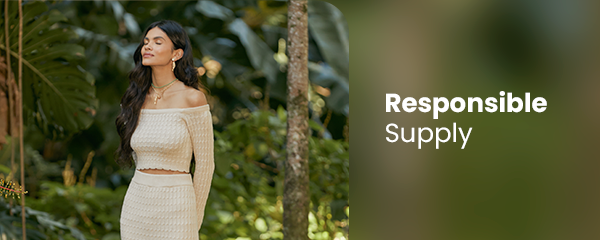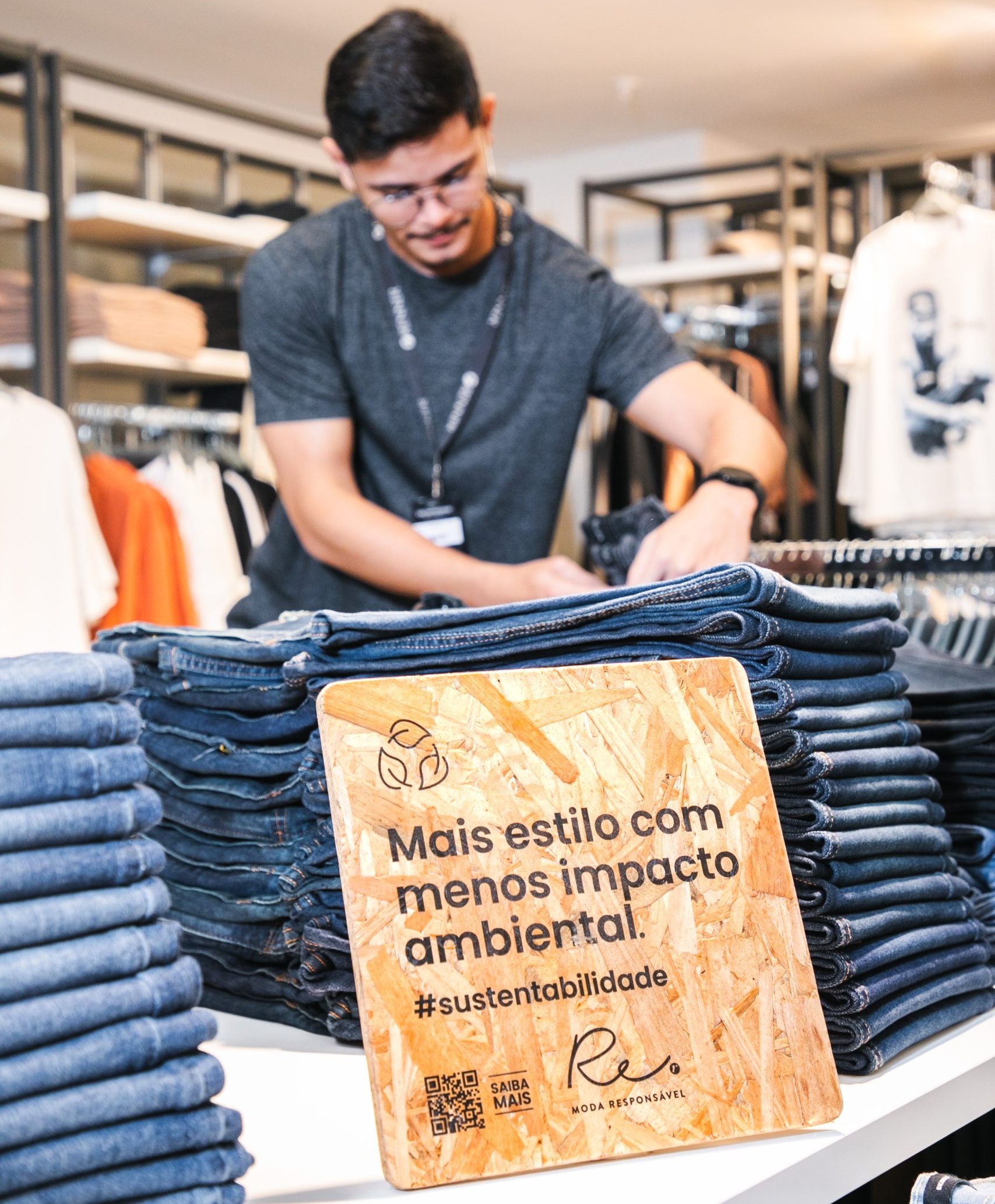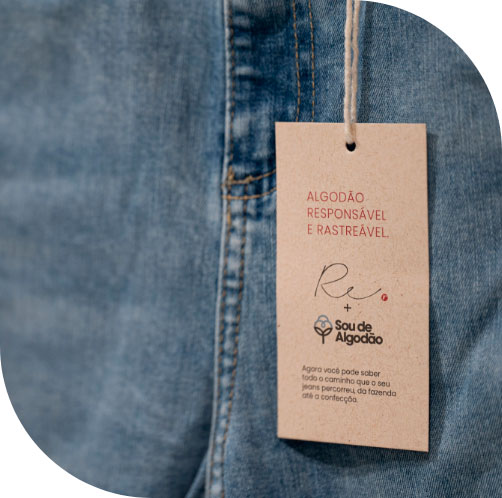CHECK OUT THE ENVIRONMENTAL PILAR HIGHLIGHTS WE'VE WORKED ON SINCE 2017:
• We stimulate environmental management for the productive chain of our suppliers. We seek to stimulate eco-efficiency in
their production processes and the improvement of environmental performance.
• In addition to eco-efficiency support, we assess compliance and environmental management in the audits of 100% of our national and international Resale Suppliers. We have our own evaluation checklist, based on the Sustainable Apparel Coalition’s Higg Index standard.









